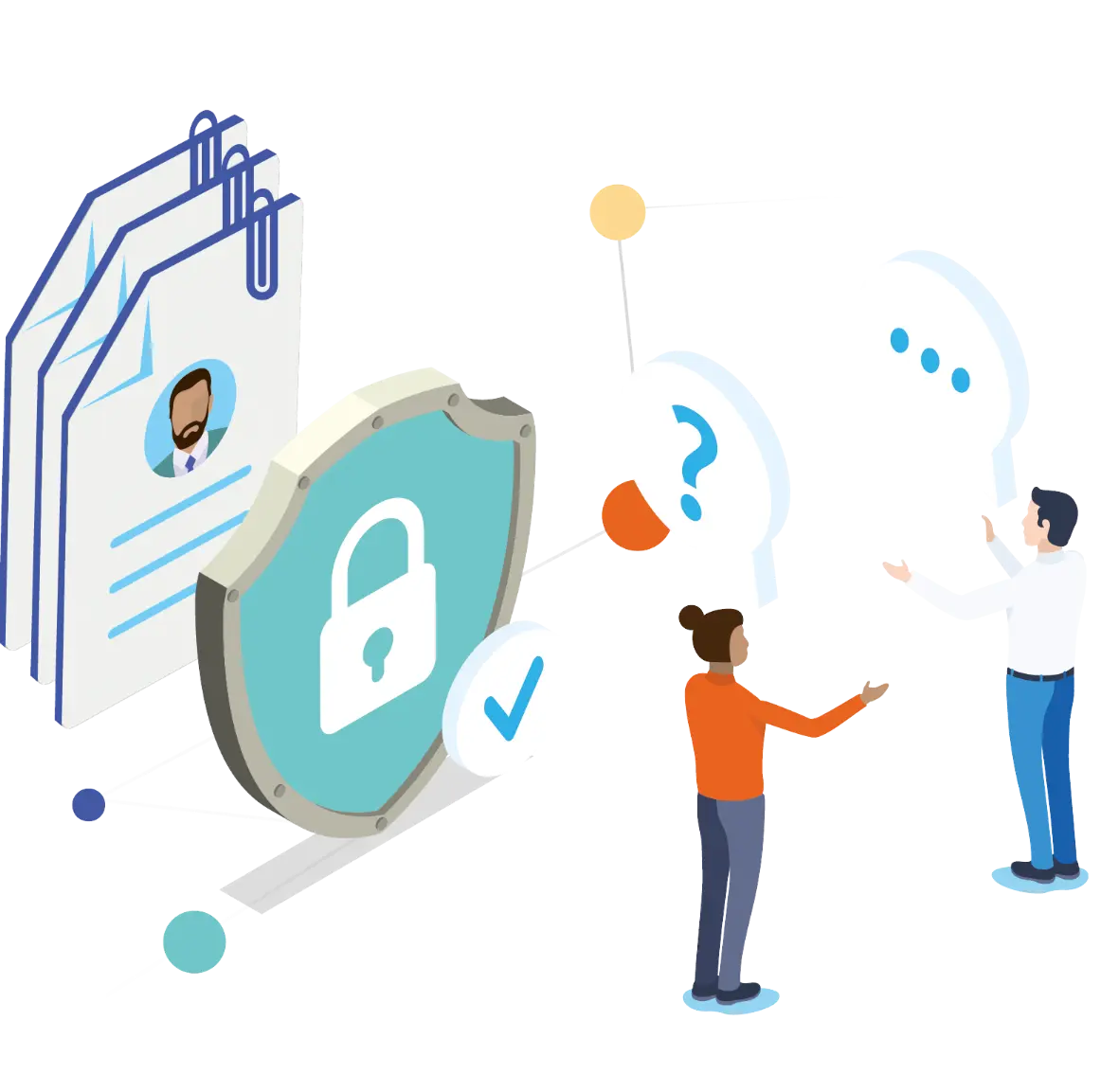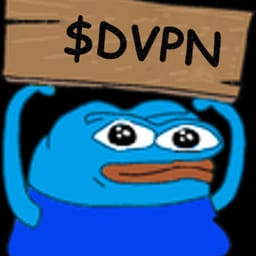The Essential 2024 Guide to VPNs: Discover the Benefits

Virtual Private Networks (VPNs) have become an increasingly popular (and necessary) - tool for internet users around the world. But what exactly are VPNs, and how can they benefit you? This comprehensive guide will delve into the world of VPNs, exploring their functionalities, advantages, and potential drawbacks.
What is a VPN?
A VPN can be likened to a secure tunnel for your internet traffic. It encrypts your data, transforming it into an unreadable code before it travels across the internet. This encryption safeguards your online activity from prying eyes, such as hackers, government surveillance, or even your internet service provider (ISP).
Think of your internet activity as a postcard. Traditionally, when you send a postcard, anyone who handles it can read the message written on it. A VPN acts like an envelope, sealing your message and ensuring only the intended recipient can access it.
In simpler terms, a VPN masks your IP address, which functions like your online fingerprint. By hiding your IP address, a VPN makes it virtually impossible for websites and online services to pinpoint your location. This anonymity offers a multitude of benefits, as we will explore in the following sections.

The Advantages of Using a VPN
VPNs provide a range of advantages for users concerned about privacy, security, and online freedom. Here's a closer look at some of the most compelling benefits:
- Enhanced Privacy: As mentioned earlier, VPNs encrypt your internet traffic, shielding your online activities from anyone who might be snooping. This includes hackers lurking on public Wi-Fi networks, government surveillance programs, or even your ISP. With a VPN, you can browse the internet with the peace of mind that your data is secure and confidential.
- Bypassing Geo-Restrictions and Censorship: The internet is not always an open platform. Many countries restrict access to certain websites or content, limiting your ability to access information freely. A VPN can be a powerful tool to circumvent these geo-restrictions. By connecting to a VPN server in a different location, you can virtually change your IP address and gain access to websites or content that might be blocked in your region.
- Boosted Security on Public Wi-Fi: Public Wi-Fi networks are notoriously insecure. When you connect to a public Wi-Fi hotspot, your data is vulnerable to interception by hackers. A VPN encrypts your data, making it unreadable even if someone manages to intercept it on a public Wi-Fi network. This safeguards your personal information, such as login credentials, financial data, and online communications.
- Improved Streaming Experience: Streaming services often restrict content based on your location. For instance, the selection of movies and TV shows available on Netflix might differ depending on your country. A VPN allows you to connect to a server in a different location, potentially granting access to a wider library of content on streaming platforms.
- Protection from Throttling: Some ISPs throttle internet speeds for users who engage in bandwidth-intensive activities like streaming or downloading large files. A VPN can help you mask your online activity from your ISP, potentially preventing them from throttling your internet connection.

How VPNs can empower specific users
While the core benefits of VPNs apply broadly, specific user groups can leverage the advantages offered by VPNs in unique ways. Here's how VPNs can empower various users:
VPNs for Journalists and Activists
Operating in environments with restricted press freedoms or tight government control, journalists and activists face significant risks. VPNs become crucial tools for safeguarding their online activities. By encrypting communications and masking IP addresses, VPNs enable journalists to:
- Securely communicate with sources and colleagues, protecting sensitive information from surveillance.
- Access censored information and websites that might be blocked by local authorities.
- Maintain anonymity while researching sensitive topics or conducting investigations.
VPNs for Businesses
VPNs offer significant advantages for businesses. From small regional and national businesses, to International businesses operating globally, VPNs offer something for everyone, including;
- Enhanced Security: VPNs create secure communication tunnels between employees in different locations, safeguarding sensitive business data and intellectual property. This is particularly important for companies dealing with confidential financial information or customer data.
- Improved Collaboration: VPNs facilitate seamless collaboration within a geographically dispersed workforce. Employees can access shared resources and internal applications securely from any location with an internet connection.
- Bypassing Geo-Restrictions: VPNs can help businesses access geo-restricted resources or tools essential for their operations. This could involve accessing market research data from a specific region or using software applications only available in certain countries.
VPNs for Travelers & Digital Nomads
Frequent travelers can get numerous benefits from using VPNs:
- Unrestricted Access: VPNs allow travelers to bypass geo-restrictions and access their favorite streaming services, social media platforms, or websites that might be blocked in the countries they visit. This ensures uninterrupted access to entertainment and communication channels while traveling abroad.
- Enhanced Security on Public Wi-Fi: Public Wi-Fi networks are notoriously insecure. VPNs encrypt internet traffic, protecting travelers' personal information, login credentials, and financial data from potential hackers lurking on public Wi-Fi networks in airports, hotels, or cafes.
- Staying Connected to Local Services: Some travelers might need access to local services like online banking or government websites while abroad. VPNs with servers in their home countries allow them to connect as if they were physically at home, ensuring access to these essential services.
VPNs for Gamers
Online gaming enthusiasts can also benefit from VPNs in several ways:
- Reduced Lag and Improved Ping: By connecting to a VPN server closer to the gaming server, gamers can potentially experience lower latency (ping) and reduced lag, leading to a smoother and more responsive online gaming experience.
- Accessing Geo-Blocked Games: Some online games might be geo-restricted or have limited content availability in specific regions. VPNs can help gamers access these games and content by connecting to servers in regions where they are available.
- Bypassing IP Bans: In rare cases, gamers might encounter IP bans for violating game rules or encountering technical glitches. VPNs can help them bypass such bans by providing a different IP address. (*It's important to note that using a VPN to circumvent legitimate bans might violate the game's terms of service.)
VPNs for Torrent Users
While the legality of torrenting varies depending on the content being downloaded, VPNs can offer some benefits for users who choose to torrent:
- Enhanced Privacy: VPNs mask users' IP addresses, making it difficult for copyright trolls or authorities to track their torrenting activity. However, it's crucial to note that VPNs don't condone illegal downloads, and users are still responsible for adhering to copyright laws.
- Bypassing ISP Throttling: Some internet service providers (ISPs) might throttle bandwidth for users suspected of heavy torrenting. VPNs can help mask torrenting activity from ISPs, potentially preventing them from throttling internet speeds.
These are just a few examples, and the potential applications of VPNs extend to a wide range of users.
So whether you're a student looking for educational resources unavailable in your region, a freelancer accessing geographically restricted work platforms, or just someone concerned about online privacy, VPNs can be a valuable tool for navigating the digital world with greater security and freedom.
Potential Drawbacks of Using a VPNs
While VPNs offer a wide range of benefits, it's important to acknowledge some potential drawbacks that VPN users may face:
- Reduced Internet Speed: The encryption process and rerouting of traffic through a VPN server can lead to a slight decrease in internet speed. However, the speed reduction is often negligible, and most users won't experience a significant impact on their browsing or streaming activities.
- Potential Service Disruptions: Occasionally, VPN connections might drop or become unstable. This can be inconvenient, especially if you're relying on a VPN for uninterrupted streaming or work.
- Cost: While there are free VPN services available, these often come with limitations in terms of security, features, and reliability. Paid VPN services typically offer stronger encryption protocols, a wider range of server locations, better speeds, and more robust customer support. The cost of paid VPNs can vary depending on the provider and the length of the subscription plan you choose. Generally, longer subscription plans offer better value for money.
- Limited Server Network: Even some paid VPN providers may have a limited server network, restricting your options for connecting to different locations. This can be a disadvantage if you need to access content or services geo-restricted in a specific region not covered by the provider's network.
- Data Logging Concerns: Not all VPN providers are transparent about their data logging practices. Some VPN providers might log your connection data, potentially compromising your privacy. It's crucial to choose a provider with a clear no-logs policy, guaranteeing they don't collect or store any data about your online activity.
- Invasive Advertising: Free VPNs, and even some paid services with limited features, might rely on intrusive advertising to generate revenue. This can be annoying and potentially compromise your privacy if the ads track your online behavior.
- Compatibility Issues: Not all VPN services are compatible with every device or operating system. Ensure the VPN service you choose offers apps or configuration options for the devices you plan to use it on.
- Potential Legal Issues: Using a VPN is illegal in some countries. It's important to research the laws of your country and any countries you might be visiting to avoid any legal repercussions associated with VPN use.
- Limited Impact on Censorship: While VPNs can be effective in bypassing some geo-restrictions, sophisticated censorship firewalls employed by some governments can sometimes detect and block VPN traffic.
- False Sense of Security: Using a VPN encrypts your internet traffic and hides your IP address, but it doesn't guarantee complete anonymity. Be cautious about clicking on suspicious links or downloading files from untrusted sources, even when using a VPN.
Choosing the right VPN provider for you
Having explored the advantages and potential drawbacks of VPNs, you need to choose the VPN provider that best meets your needs.
Here’s some key factors you’ll need to consider:
- Cost: As mentioned earlier, there are free and paid VPN services available. Free VPNs can be tempting, but as we discussed, they often come with limitations in terms of security, features, and reliability. Paid VPN services typically offer stronger encryption protocols, a wider range of server locations, better speeds, and more robust customer support. The cost of paid VPNs can vary depending on the provider and the length of the subscription plan you choose. Generally, longer subscription plans offer better value for money.
- Security Features: When choosing a VPN provider, prioritizing robust security features is paramount. Look for a provider that utilizes strong encryption protocols like AES-256. Additionally, features like a kill switch are crucial. A kill switch automatically terminates your internet connection if the VPN connection drops unexpectedly, preventing your unencrypted data from being exposed.
- Privacy Practices: Transparency is key when it comes to a VPN provider's privacy practices. Look for a provider with a clear no-logs policy, guaranteeing they don't collect or store any data about your online activity. Additionally, consider the provider's jurisdiction. Ideally, choose a provider based in a country with strong privacy laws and limited government surveillance.
- Server Network: The size and location of a VPN provider's server network are crucial factors to consider. A wider server network provides you with more options for connecting to different locations. This can be beneficial for bypassing geo-restrictions, accessing blocked content, or optimizing your connection speed.
- Speed and Performance: While some slowdown is inevitable with VPN use, the best VPN providers minimize the impact on your internet speed. Look for a provider with a good reputation for delivering consistent and fast speeds. Consider user reviews and independent speed tests to gauge a provider's performance.
- Device Compatibility: Ensure the VPN service you choose is compatible with the devices you plan to use it on. Most reputable providers offer VPN apps for Windows, macOS, Android, iOS, and other platforms. Some providers even offer simultaneous connections, allowing you to use the VPN on multiple devices at the same time.
- Customer Support: Reliable customer support is essential, especially if you encounter any technical difficulties. Look for a provider with responsive customer support via live chat, email, or phone.
You’ll need to weigh up these potential drawbacks and decide what your priorities are. choose a reputable VPN provider that prioritizes security and transparency.
Additional Considerations: Understanding VPN Protocols and Encryption
Understanding the technical jargon associated with VPNs can be overwhelming. However, familiarizing yourself with a few basic concepts can help you choose the right service:
- VPN Protocols: VPN protocols dictate how data is encrypted and routed through the VPN tunnel. Some common VPN protocols include OpenVPN, IKEv2/IPsec, and WireGuard. OpenVPN is a popular and secure option, while IKEv2 offers a good balance of security and speed. WireGuard is a newer protocol gaining traction due to its speed and efficiency.
- Encryption Standards: Encryption standards determine the strength of the encryption used to protect your data. AES-256 is the current industry standard, offering a virtually unbreakable level of encryption.
- Decentralized VPNs (dVPNs): A relatively new technology, dVPNs like Sentinel offer an alternative approach to traditional VPNs. Unlike traditional VPNs with centralized servers controlled by a single provider, dVPNs leverage a peer-to-peer network. Users contribute their unused bandwidth to create a distributed network, with data traffic routed through multiple nodes operated by individual users.
It's important to carefully consider both the advantages and drawbacks of dVPNs before choosing this option. Traditional VPNs with a strong track record of security and performance might be a better choice for users who prioritize stability and speed.
However, dVPNs offer a promising alternative for users who value enhanced privacy, censorship resistance, and potentially lower costs.

Conclusion: VPNs - A Powerful Tool for Online Privacy and Freedom
VPNs are valuable tools for anyone concerned about online privacy and security. They offer a multitude of benefits, allowing you to browse the internet anonymously, bypass geo-restrictions, and access blocked content. However, it's crucial to choose a reputable VPN provider that prioritizes security, offers a robust set of features, and aligns with your specific needs.
By considering the factors outlined in this guide, you can make an informed decision and leverage the power of VPNs to navigate the online world with greater privacy and freedom.
Join Our Journey
At dVPN.news every member of the Sentinel community is a contributor. Whether you're writing articles, sharing tutorials, or participating in discussions, your involvement is what drives our collective growth, and best of all it's rewarded! Together, so if you to contribute to the growth of the Sentinel Network, you are in the right place!

Connect with Us
Stay in touch and be part of our growing community:
- Follow Sentinel on X (Twitter)
- Follow The Growth DAO on X (Twitter)
- Join The Growth DAO community Telegram Group






